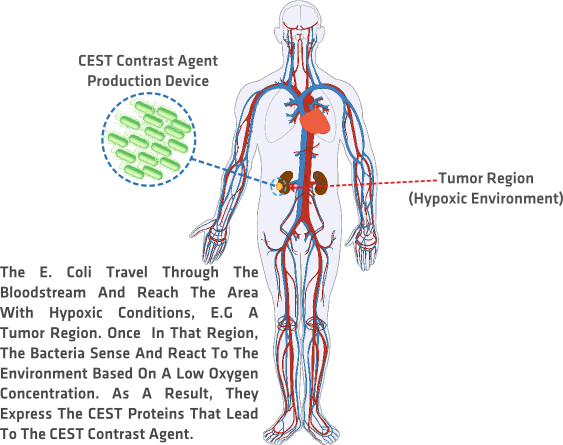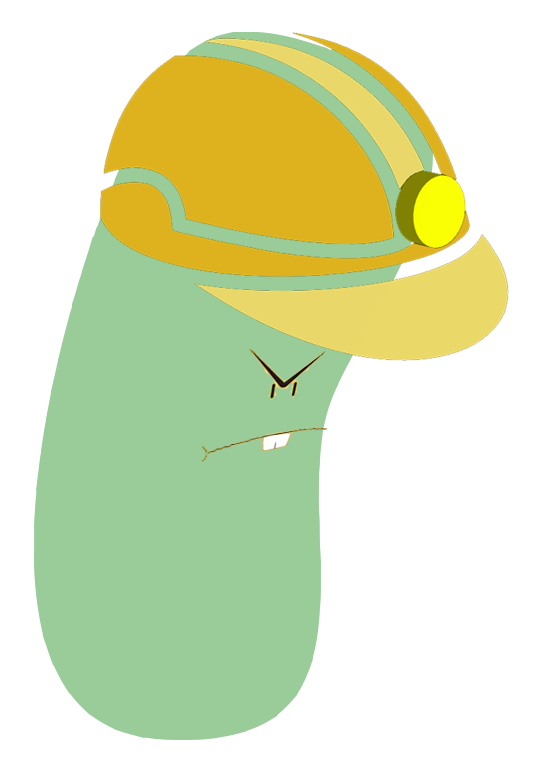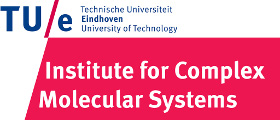Team:TU-Eindhoven/Description
From 2013.igem.org
(→Project Description) |
(→Project Description) |
||
| Line 13: | Line 13: | ||
Based on the principle of our project, we propose two [[Team:TU-Eindhoven/Applications | '''APPLICATIONS''']], tumor CEST MR Imaging and tracking of bacteria in bacterial infections studies. After image acquisition our CEST protein production device can be deactivated and eliminated by the Thymidine kinase/Ganciclovir system as a [[Team:TU-Eindhoven/KillingMechanism | '''KILLING MECHANISM''']]. | Based on the principle of our project, we propose two [[Team:TU-Eindhoven/Applications | '''APPLICATIONS''']], tumor CEST MR Imaging and tracking of bacteria in bacterial infections studies. After image acquisition our CEST protein production device can be deactivated and eliminated by the Thymidine kinase/Ganciclovir system as a [[Team:TU-Eindhoven/KillingMechanism | '''KILLING MECHANISM''']]. | ||
| + | |||
| + | {{:Team:TU-Eindhoven/Template:FloatingImage | position=right | size=2 | filename=bacteriaMiner.png}}<br> | ||
The greatest risk to the success of the applications we propose is the difficulties [[Team:TU-Eindhoven/Society|'''SOCIETY''']] might have with coping with the idea of using live bacteria in patients or animals. Therefore, as our human practice project, we developed an online source of knowledge related to the main areas of synthetic biology. | The greatest risk to the success of the applications we propose is the difficulties [[Team:TU-Eindhoven/Society|'''SOCIETY''']] might have with coping with the idea of using live bacteria in patients or animals. Therefore, as our human practice project, we developed an online source of knowledge related to the main areas of synthetic biology. | ||
| - | |||
| - | + | ||
{{:Team:TU-Eindhoven/Template:BaseFooter}} | {{:Team:TU-Eindhoven/Template:BaseFooter}} | ||
Revision as of 13:46, 20 September 2013



Project Description

Our project focuses on a relatively new form of MRI: CEST imaging. CEST imaging proteins contain hydrogen atoms which can be used to create the same image quality as when conventional heavy metals are used. We use Escherichia Coli as the CHASIS to express CEST proteins that leads to CEST contrast when the bacteria sense a hypoxic environment, thus working as a production factory and delivery system for the CEST MRI contrast agent.
We use ten PROTEINS, all of which are rich in Lysine and Arginine content, thus leading to a high CEST contrast. In order to achieve the production of the CEST MRI contrast agent by our bacteria, we must create a series of diverse MODELS focusing on the different components of the MRI contrast agent production.
In the LAB we attempt to produce the CEST MRI proteins, both aerobically and anaerobically. To Enable the anaerobic expression specialized promotors are designed to react to the changes in oxygen saturation and trigger the protein expression. After protein expression the proteins are tested for the quality of their contrast in an MRI machine.
Based on the principle of our project, we propose two APPLICATIONS, tumor CEST MR Imaging and tracking of bacteria in bacterial infections studies. After image acquisition our CEST protein production device can be deactivated and eliminated by the Thymidine kinase/Ganciclovir system as a KILLING MECHANISM.

The greatest risk to the success of the applications we propose is the difficulties SOCIETY might have with coping with the idea of using live bacteria in patients or animals. Therefore, as our human practice project, we developed an online source of knowledge related to the main areas of synthetic biology.
 "
"



